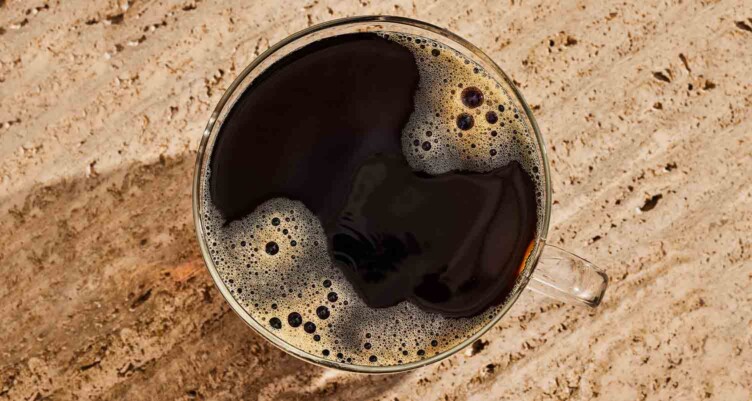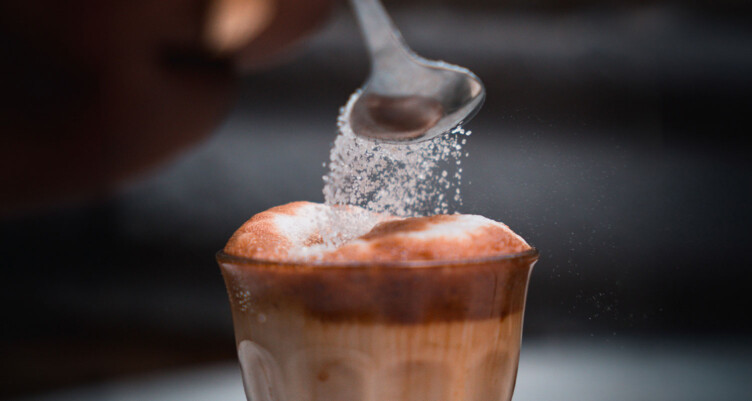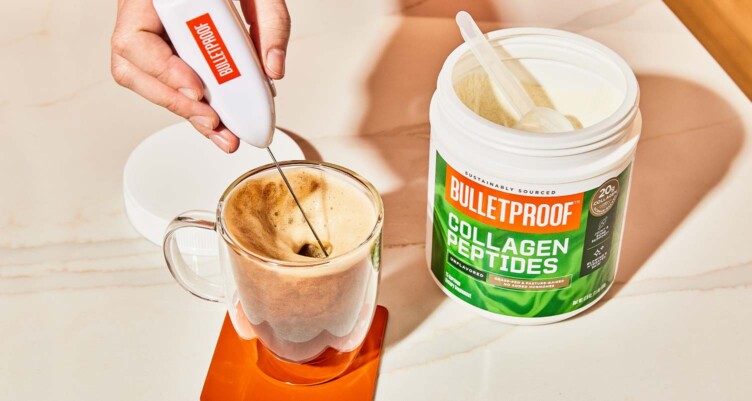What Coffee Does to Your Metabolism

- Plain coffee contains polyphenols and caffeine that keep you focused and energized throughout the day.
- Common coffee add-ins like artificial creamers and processed sweeteners may hamper your health goals.
- Learn how coffee affects your metabolism, plus tips to support weight management.
Your morning coffee comes with major benefits. Coffee is one of the richest sources of antioxidants in the average person’s diet, according to the American Chemical Society. Just one serving delivers beneficial compounds like chlorogenic acid, polyphenols, and caffeine.[1]
But what about your metabolism? As it turns out, coffee can support weight management and fat-burning — but you’ll want to skip the added sugar and heavily processed creamers. Here’s what you should know about coffee and your metabolism, plus easy swaps you can make to stay on your game.
Download the Bulletproof 30-Day Upgrade and learn how to fuel your mind and body
What makes coffee so good for you?

Forget the myth that coffee slows down your performance. Science shows time and time again that your morning joe delivers big benefits for your health and wellness:
- Coffee has been shown to raise ketone levels. Ketones help burn fat, curb cravings and power your brain.[2]
- Contains chlorogenic acid a compound that can help protect your mitochondria, support metabolism, and support eye health.[3]
- Coffee contains compounds that promote your metabolism, help you burn fat during exercise and can boost athletic performance.
Keep reading to find out how.
Coffee and your metabolism

Part of coffee’s benefits come from caffeine, a psychoactive stimulant drug. Caffeine has been shown to boost your metabolic rate — the speed at which your body turns calories into energy.[4] [5] [6]
Early research also suggests that caffeine supports fat-burning during exercise. One 2018 study gave participants 3mg of caffeine per kilogram of bodyweight. Consuming caffeine actually shifted their caloric burn — the participants ended up burning more body fat during exercise, versus burning carbs alone.
Plus, stimulants help fight fatigue and kick your energy into high gear. That’s because caffeine stimulates the central nervous system, heart and muscles, according to the American Council on Exercise.
If you’re looking for a morning pre-workout, plain coffee is a great place to start. Caffeine has been shown to boost athletic performance during both prolonged endurance exercise and short-term intense training.[7]
So, research supports the idea that coffee is awesome. But there are two important caveats to keep in mind:
- Don’t overdo it. Up to 400mg of caffeine a day appears to be safe for most healthy adults, according to the Mayo Clinic. That’s about four cups of brewed coffee.
- Be aware of what you’re adding to your cup. Most scientific studies are examining caffeine or plain coffee, not pumpkin spice lattes. Keep reading to learn what you should limit — and what coffee add-ins to enjoy instead.
Limit these common coffee add-ins

Not everyone likes black coffee, but you probably aren’t doing yourself any favors if you add artificial creamers and sugar to your morning brew.
While they add flavor to your mug, artificial creamers load your coffee with ingredients that can make you feel foggy and fatigued. The most popular non-dairy creamers contain franken-foods like dried corn syrup and vegetable oil, which are high in sugar and inflammatory omega-6 fatty acids.
Plus, added sugar (including “natural” sugar, like cane and coconut sugar) contributes to blood sugar spikes and energy crashes. Even plant-based creamers with almond or coconut milk can contain added sugar or binders that mess with your gut bacteria, which can ultimately impact your metabolism.
What about plain cream or half-and-half? Thanks to casein and lactose, two of the main proteins in milk, pasteurized dairy can cause digestive distress or trigger allergies in people who have dairy sensitivities.
No matter how you sip it, artificial creamers and added sugar won’t help you get all the amazing benefits of coffee. If you want a smooth-tasting brew that won’t sabotage your health goals, though, you still have options.
Related: Kick Your Sugar Habit With These Bulletproof Alternative Sweeteners
Use these swaps for creamy and flavorful coffee

- Start your day with Bulletproof Coffee: Made with grass-fed butter and Brain Octane MCT oil, Bulletproof Coffee is your creamy and delicious ticket to steady energy (without the sugar crash). Need some sweetness? Add a touch of a low-glycemic sugar substitute.
- Mix in flavorful spices: Spices like Ceylon cinnamon taste great in coffee and support fat-burning.[8]
- Stir in Collagen Protein: Collagen protein supports healthy skin, bones and joints, and the added protein makes your coffee even more satisfying. Try 1-2 scoops of Chocolate Collagen Protein for an easy mocha.
Read Next: How to increase your metabolism without pills or boosters
Sign up for early access to sales, product launches, the latest Bulletproof news and more!



